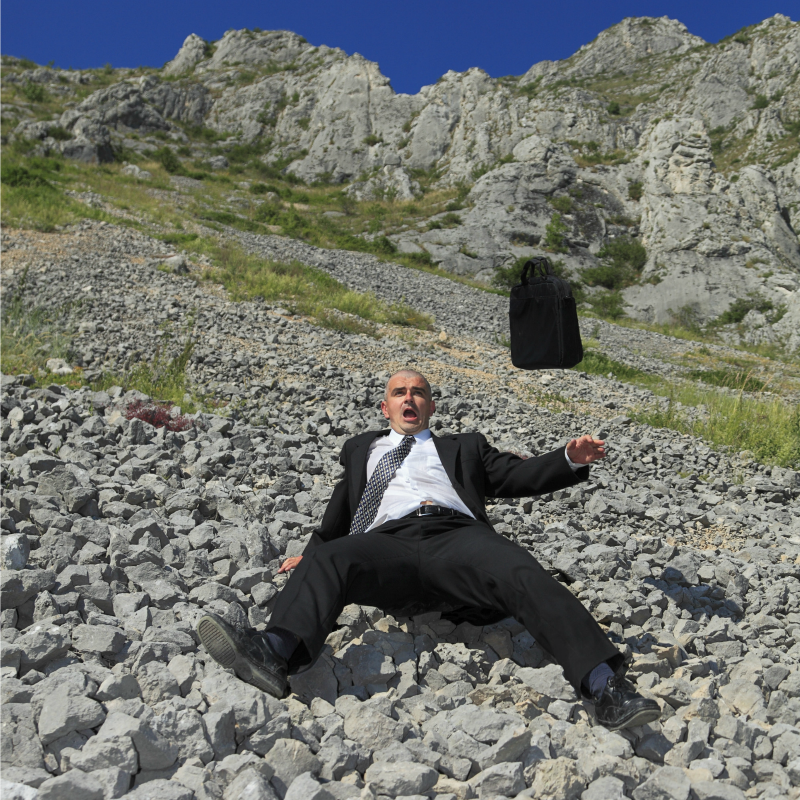News & Stories
Caution: Small ethical lapses lead to a slippery slope
 Why one small ethical slip can snowball into major violations over time if left unchecked is explained in a new study by a team of business professors.
Why one small ethical slip can snowball into major violations over time if left unchecked is explained in a new study by a team of business professors.
How unethical behavior unfolds over time was studied for the first time by David Welsh of the University of Washington, Lisa Ordóñez of the University of Arizona, Deirdre Snyder of Providence College and Michael Christian of the University of North Carolina at Chapel Hill.
“Our results provide the first empirical evidence about how committing small ethical indiscretions over time can lead to larger infractions,” said Welsh.
Small, unethical actions might seem innocuous. “People rationalize their behavior to justify it,” said Ordóñez. They might think ‘No one got hurt’ or ‘Everyone does it.’ The next time they feel fine about doing something a little bit worse the next time and then commit more severe unethical actions.”
“Because of this rationalization process – what we call moral disengagement – people are more likely to slip into a pattern of behavior,” said Snyder. “We call this the slippery-slope effect.”
A paradox exists. “Unethical behavior is widespread, but most people think of themselves as moral, ethical people,” said Christian, an organizational behavior professor at UNC Kenan-Flagler Business School.
“We looked at what motivates people who are otherwise good to do increasingly bad things. The slippery-slope effect is personified by Bernie Madoff, who in 2009 described it to Vanity Fair this way: ‘Well, you know what happens is, it starts out with you taking a little bit, maybe a few hundred, a few thousand. You get comfortable with that, and before you know it, it snowballs into something big.’”
The researchers used three different tasks across four studies to measure unethical behavior at multiple points in time to uncover the process by which the slippery-slope effect occurs.
They found that:
- People are more likely to justify small ethical indiscretions than major ones.
- Over time, as they justify more and more, they can be led to justify even big indiscretions.
- When faced with abrupt and large dilemmas (rather than those that gradually increase), they are less likely to be unethical.
- But they are more likely to make unethical choices if they are faced with indiscretions gradually over time.
- The slippery-slope effect can be reduced by inducing a “prevention focus,” a mindset associated with self-regulation that makes people more vigilant and thereby deactivates the justification process.
To stem the slide, a business leader can:
- Ensure that the firm has a strong ethical culture where misconduct is clearly defined.
- Set and maintain an ethical status quo.
- Use rhetoric to underscore ethical boundaries and continue to talk about them. Include ethics in their companies’ vision statements, speeches and presentations to employees.
- Make ethics part of the corporate identity, such as Google’s mantra of “Do no evil,” to interrupt moral disengagement.
- Be vigilant about small ethical lapses and address them quickly to prevent larger ones. Employees who see coworkers called out for minor offenses might be less likely to rationalize their own potentially deviant behaviors.
- Inculcate a prevention focus in employees by setting clear standards and openly delineating potential ethical pitfalls that must be avoided.
- In the end, awareness is a key to understanding and preventing unethical decisions in business, Christian said. “The ideal is for employees to recognize when they’ve committed a minor transgression and check themselves. We hope that our research, by drawing attention to this effect, will increase vigilance by individual business leaders.”
The Journal of Applied Psychology published their findings, “The Slippery Slope: How Small Ethical Transgressions Pave the Way for Larger Future Transgressions.”